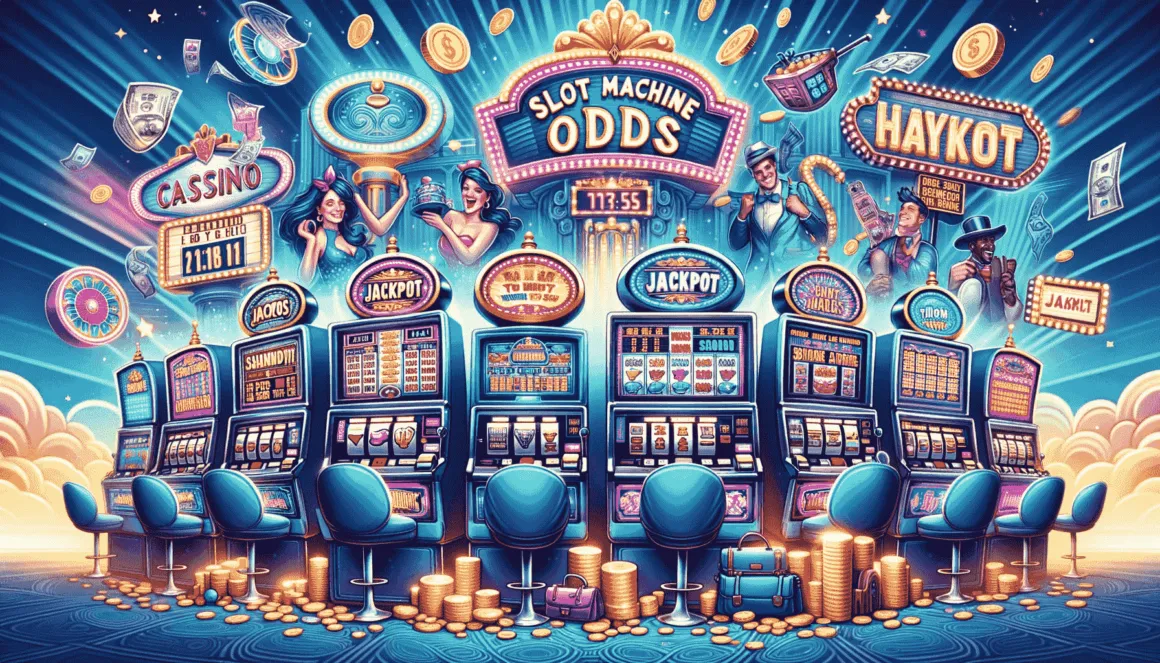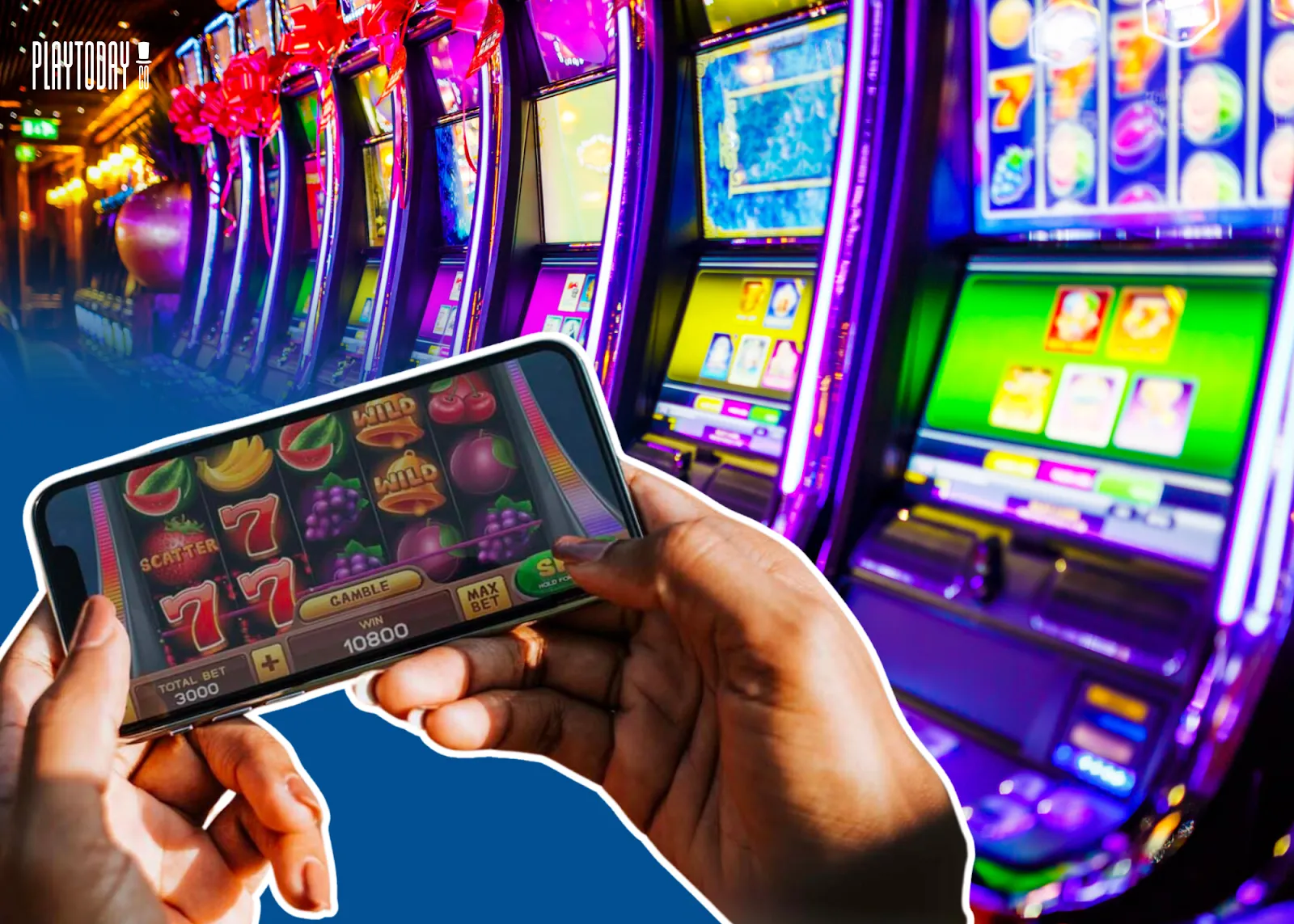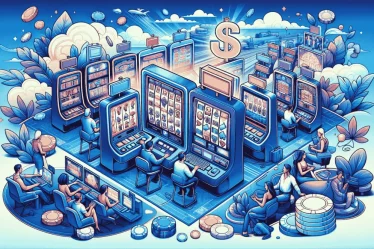
Slot machines are one of the most popular forms of gambling in the world. These flashy, colorful machines can be found in casinos, bars, and even convenience stores. The thrill of pulling the lever or pressing a button and potentially winning huge jackpots has made them a favorite among gamblers.
But have you ever stopped to think about your actual odds of winning on a slot machine? Many people assume that all slot machines are created equal and that their chances of winning are the same no matter which one they choose. However, this is not the case.
In this guide, we will delve into the world of slot machine odds and break down everything you need to know to have a better understanding of your chances of winning. We will also discuss tips and strategies to increase your chances of winning and debunk common myths surrounding slot machines.

1. The Basics of Slot Machine Odds
The first step to understanding slot machine odds is to understand how these machines work. Slot machines are programmed with a Random Number Generator (RNG) that generates random combinations every time the lever is pulled or the spin button is pressed. This means that every spin is completely random and independent from the previous one.
The outcome of each spin is determined by the combination of symbols appearing on the payline. Different combinations have different payouts, with the highest being the jackpot. The odds of hitting the jackpot vary depending on the type of machine and the number of reels and symbols.
Types of Slot Machines
There are various types of slot machines, but they can be broadly categorized into three main types:
1. Classic Slots
Also known as traditional slots, these machines have three reels and usually have only one payline. They feature classic symbols such as fruits, bars, and lucky sevens. The odds of winning on these machines are typically higher compared to other types of slot machines.
2. Video Slots
Video slots are the most popular type of slot machine in casinos. These machines have five or more reels and multiple paylines, ranging from 9 to over 100. They also feature advanced graphics and animations, making them more visually appealing. The more paylines a video slot has, the higher its odds of winning, but the payouts may be smaller.
3. Progressive Slots
Progressive slots are linked machines that pool a portion of each bet into a jackpot that continues to grow until it is won. These jackpots can reach millions of dollars, making them very enticing for players. However, the odds of winning on progressive slots are much lower compared to other types of machines.
2. Calculating Slot Machine Odds
Now that you understand the different types of slot machines, it’s time to look at how the odds are calculated. Slot machine odds are expressed as the Return to Player (RTP) percentage, which represents the average amount of money a player can expect to win back over time.
For example, if a machine has an RTP of 95%, it means that for every $100 wagered, the machine will return $95 to players in winnings, keeping $5 as profit. This does not mean that a player will win back exactly 95% of their bets, but rather that the machine will pay out this percentage over time. The actual payout may vary greatly from one session to another.
Factors That Affect Slot Machine Odds
Several factors can affect the odds of winning on a slot machine, including:
1. Payline Structure
The number of reels and symbols on a machine affects the odds of hitting winning combinations. Machines with more reels and symbols offer more chances to win, but the odds of hitting the jackpot are lower.
2. Payout Percentages
Casinos can adjust the payout percentage of slot machines, ranging from as low as 75% to as high as 98%. The higher the payout percentage, the better your odds of winning. It’s always a good idea to check the payout percentage before choosing a machine to play.
3. Hit Frequency
Hit frequency refers to how often a slot machine pays out. A machine with a high hit frequency will pay out more frequently, but the payouts may be smaller. On the other hand, a machine with a low hit frequency may have longer dry spells, but the payouts will be much larger.
3. Strategies for Improving Your Odds

While slot machines are random and there is no guaranteed way to win, there are some strategies you can use to improve your odds of winning. Here are some tips to keep in mind:
Choose the Right Machine
As mentioned earlier, different types of slot machines offer different odds of winning. For example, classic slots may have higher odds of winning but with smaller payouts, while progressive slots have lower odds but with the potential for huge jackpots. Consider what type of experience you are looking for and choose a machine accordingly.
Bet Max on Progressive Slots
If you do decide to play progressive slots, it’s important to bet the maximum amount allowed. This gives you a chance at the jackpot, which is usually only triggered with a maximum bet.
Set a Budget and Stick to It
It’s important to set a budget before playing and stick to it. Slot machines are designed to be addictive, and it’s easy to get carried away when chasing a big win. Setting a limit for how much money you are willing to spend will help prevent overspending and potential financial problems.
Take Advantage of Bonuses and Promotions
Many casinos offer bonuses and promotions for slot players, such as free spins or cashback rewards. Be sure to take advantage of these offers, as they can increase your chances of winning and give you more playtime without spending additional money.
4. Common Myths about Slot Machine Odds
There are many myths surrounding slot machine odds, and it’s important to separate fact from fiction. Here are some common myths and the truth behind them:
Myth: Machines that haven’t paid out in a while are due for a win.
Truth: As mentioned earlier, slot machines are random, and each spin is independent from the previous one. Just because a machine hasn’t paid out in a while doesn’t mean it’s more likely to hit a jackpot.
Myth: The temperature of a slot machine affects its odds of winning.
Truth: Some players believe that a hot or cold machine can affect their chances of winning. However, the temperature of a machine has no impact on its odds of paying out. This is just a superstition with no evidence to support it.
Myth: Higher denomination machines offer better odds.
Truth: Many people believe that playing on higher denomination machines will result in better odds of winning. However, the odds of winning are the same regardless of the denomination. Your chances of hitting a jackpot may be higher, but the payouts will also be larger, so it ultimately evens out.
5. Slot Machine Odds vs. Other Casino Games

When it comes to gambling, it’s always important to understand the odds of winning on different games. While slot machines may seem like a fun and easy way to win money, the odds of winning on other casino games may actually be better.
Blackjack
Blackjack offers some of the best odds among casino games, with a house edge of only 0.5% if played with basic strategy. This means that for every $100 wagered, the player can expect to lose just $0.50.
Roulette
Roulette may seem like a game of chance, but there are strategies that can be used to improve your odds. For example, betting on a single number has odds of 35 to 1, but betting on red or black has almost a 50/50 chance of winning.
Craps
Craps is another game with favorable odds, as the house edge can be as low as 0.6%. It’s also a very social game, making it a popular choice among casino-goers.
6. Responsible Gambling
Before we conclude this guide, it’s important to touch on the topic of responsible gambling. While gambling can be a fun and exciting activity, it’s essential to approach it with caution and set limits for yourself.
If you find that you are spending more money than you can afford on slot machines or other forms of gambling, it may be time to seek help. Many casinos offer resources for those struggling with gambling addiction, and there are also hotlines and support groups available.
Conclusion
In conclusion, slot machine odds are determined by the type of machine, payline structure, payout percentage, and hit frequency. While there are strategies that can improve your chances of winning, ultimately, slot machines are random, and there is no guaranteed way to win.
Remember to always gamble responsibly and set limits for yourself. With a better understanding of slot machine odds, you can make informed decisions and have a more enjoyable and potentially profitable gambling experience.


